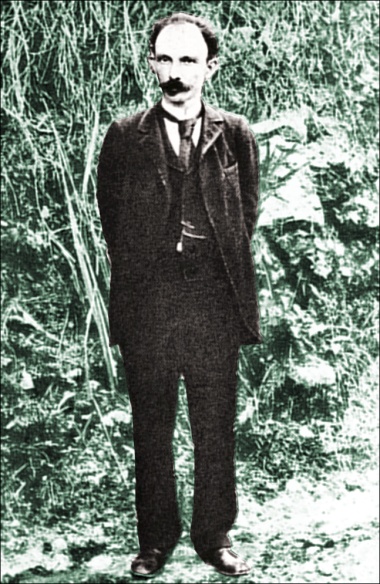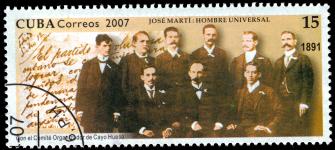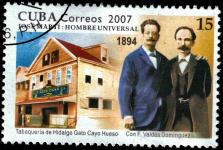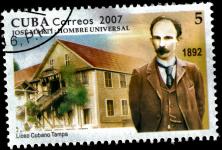José Martí - A Brief Intro
by Jerry A. Sierra

Don José Julián Martí y Pérez was born in Havana in 1853, and sentenced to prison as a teenager for expressing his support for the revolution during the Ten Year War. After his sentence he traveled to Spain, where he received degrees in law and philosophy before returning to Cuba.
He was banished again for supporting the idea of Cuban independence and traveled to Paris and Venezuela, before settling in New York in 1881, earning a living as a writer and teacher.
José Martí was one of the great writers of the Hispanic world. His written works include poems, children stories, plays, articles and commentaries.
In 1892 Martí dedicated himself exclusively to planning and organizing what became Cuba's third war of independence. Aside from enlisting the support of Ten-Year War veterans Antonio Maceo, Maximo Gomez and others, he started the Cuban Revolutionary Party, which raised funds for the war and established a Cuban government that would take over when the war was over.
By March 1894 Martí began to push for immediate revolutionary action. Historian Philip Foner sheds light on his urgency: "Martí's impatience to start the revolution for independence was affected by his growing fear that the imperialist forces in the United States would succeed in annexing Cuba before the revolution could liberate the island from Spain. Martí noticed with alarm the movement to annex Hawaii, viewing it as establishing a pattern for Cuba…"
Martí died in battle shortly after the war began. He is known in Cuba as the father of the Cuban Revolution.
Learn About Martí
José Martí: A Biography | The José Martí Timeline | Books About Martí



Front Door |
Contents |
Galleries |
Site Index |
Timetables
Use of this site implies full agreement with the terms and conditions under which this site is available.

Named Best of the Web for American Imperialism & Spanish-American War by Shmoop
